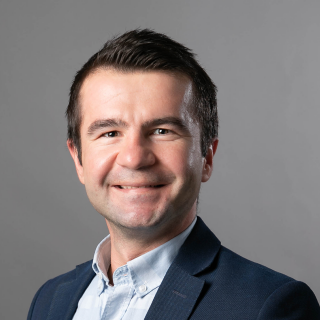Master's Degree Programme in Futures Studies
Provides comprehensive, multidisciplinary and practical education in the field of futures studies. Designed to educate foresight experts who help organisations to harness future opportunities and avoid unnecessary risks.
Futures Studies is a new emerging field of research. As the future does not exist yet, futurists study the future projections of and discontinuities in past trends and current views of the long-term future. Futures Studies is interested in the probable futures, possible futures and preferred futures. As a societal action, futures studies aim to serve private and public decision-makers by outlining alternative long-term strategies in a changing operational environment.
As an academic field of research, Futures Studies generates knowledge of the ways and processes of how individuals and organisations deal with the uncertain future. Typical research questions in the field are focused to the epistemology of knowledge about the future, the methodological development of futures studies tools and analyses of alternative futures of a clear topic or a more general theme. Futures Studies is an interdisciplinary field, where wide topics are analysed and the results and approaches of more traditional disciplines meet.
Will you be the next expert of the future?
The programme includes plenty of rehearsal, case-studies and real-life experiences on using foresight methodology. These range from quantitative and qualitative methods to innovative and creative futures design techniques.
Here you will get a versatile toolkit for implementing foresight thinking for the benefit of a given organisation. You will qualify to a wide array of expert positions in the strategic and foresight units of private companies and public institutions. The programme also serves as an excellent basis for building a consultant business.
Programme in brief
The extent of the Programme is 120 ECTS and the degree is designed to be completed in two years. Futures Studies as a major subject includes compulsory and optional courses that build the expertise of the student in, for example, futures studies methodology, strategic foresight and scenario building.
Students are free to choose a minor subject and/or optional studies within UTU that complements their career goals. Optional studies can include courses in Futures Studies, but can also widen the knowledge of the student in new subjects or thematic areas. All students are also expected to study languages (Finnish as well as English) and general methodological studies.
See the structure in detail and list of courses in the study guide.
The programme is offered by Turku School of Economics at the University of Turku. TSE has earned AACSB Accreditation (The Association to Advance Collegiate Schools of Business), the highest standard of excellence in business education worldwide. We have been accredited since 2019 and are committed to continually improve the quality of the education we offer.
The two-year programme is run by the Finland Futures Research Centre, which is the world’s premier hotspot of future-minded scholars. The Centre is specialised in futures studies and foresight and seeks to accomplish the ultimate goal of a responsible and sustainable future. The Centre researches alternative futures and the challenges and possibilities included in them. Academic research places special emphasis on:
- foresight and futures research methodology,
- environmental and energy research,
- socio-cultural research,
- food and consumption,
- security, and
- education.
The Finland Futures Research Centre develops the scientific foundations and methods of futures studies. The Master’s Degree Programme utilises the resources, connections and personnel of the Centre to provide students with a comprehensive, multidisciplinary and practical education in the field of futures studies.
The Master’s Degree Programme in Futures Studies is designed to educate futures experts. You will gain the theoretical and academic knowledge required for starting PhD studies as well as practical competences for working in challenging positions in companies or the public sector.
Education is given in English, and the students of this international programme learn to work together with associates from different countries and scientific backgrounds.
The thesis is a scientific research report comprised of both a theoretical section and empirical applications. The aim of the process is:
- to provide you with the tools to locate and critically evaluate scientific information,
- to train independent problem solving for demanding research questions and thus lay and advanced knowledge and skill basis for doctoral studies,
- to train presentation and argumentation skills, both oral and written, and
- to attain expertise in the practices of researching, utilising and developing alternative and possible futures in the chosen field.
Examples of Master’s thesis topics in futures studies:
- Images of the future of privacy: A privacy dynamics framework and a causal layered analysis of ideal types.
- The future of branded sportswear store formats in Germany 2030: Four images of the future.
- Futures of citizens’ political participation in Russia: scenarios for years 2014–2025
- Sustainable Development – the Key to Competitiveness CSR as an added value to Alstom’s corporate performance
- Futures of Finnish food system by 2050. The perspective of resilience
Entry requirements
General Requirement
You are an eligible applicant for Master’s-level studies if
- you have a nationally recognized first cycle degree – normally a Bachelor’s degree – from an accredited institution of higher education,
- your degree corresponds to at least 180 ECTS (European credits) or to three years of full-time study,
- your degree is in a relevant field for the Master’s degree programme that you’re applying to. Please check the section on programme-specific admission requirements for detailed degree requirements.
Language Requirements
Applicants must have excellent English language skills and a certificate that proves those skills. You can indicate your language skills by taking one of the internationally recognized English language tests.
Applicants must reach the minimum required test results to be considered eligible for studying in the University of Turku. No exceptions will be made. Read more about the language requirements here.
Study right
Please note that it is not possible to have more than one Bachelor’s or Master’s study right at the same Faculty. Therefore, when accepting an offered study place, the student will lose any previous BSc. or MSc. study right at the Turku School of Economics.
Before you start preparing your application, always read the full admission requirements on the application portal Studyinfo.fi
Phase 1. General requirements
A) The applicant must have one of the following degrees:
- A Bachelor’s degree from Finland or a corresponding degree from a foreign university. The degree must be from a relevant field, e.g.: Economics and Business Administration, Arts (humanities), Social Sciences, Education, Science (natural sciences), Health Science, Administrative Sciences, Medicine, Technology, Laws, Engineering, Natural Resources field, Sport Sciences and Arts.
- A Bachelor’s degree from a University of Applied Sciences in Finland or a corresponding degree from a foreign university of Applied Sciences giving eligibility for Master’s level studies in that particular country. The degree must be from the following fields: Business Administration, Culture and Arts, Natural Resources, Engineering (e.g. Logistics, Planning, Industrial Management, Biotechnology and Food Industries, Environmental Technology or Media Engineering
NB! Applicants holding a Bachelor’s Degree from a University of Applied Sciences will be required to supplement their degree with 10 credits of Futures Studies. The aim of the supplementary studies is to give the student sufficient qualifications to finish the Master of Social Sciences degree.
B) Good level of proficiency in the English language
Applicants must have necessary English language skills as stated by the University of Turku and a certificate that proves those skills. Please see more on general language requirements.
C) Minimum Grade
The grade of the applicant’s major studies must be 3 or higher for students graded on a grading scale of 1–5.
All applicants that fulfil the phase 1 of the application process which means general degree requirements as well as the minimum grade requirement will move on to phase 2 of the selection.
Phase 2: Selection Criteria
The applicants that have passed phase 1 will be graded and approximately 20 applicants with the highest points will be selected. The grading is done as follows:
– Bachelor’s thesis or corresponding final thesis
– Previous studies in futures studies
– The grade of the applicant’s major studies
– Motivation letter
If the motivation letter is missing, the application will be rejected.
Career prospects
As a student in the programme, you will learn:
- to understand, compare and evaluate different futures studies cases and methods in relation to each other,
- to explore ethical questions in decision making processes and learn how to incorporate sustainability goals to futures studies,
- how to design and manage demanding projects independently and apply the various methods of futures studies and judge the meaning and consequences of your methodological choices,
- to communicate the results of your projects and studies in a larger context, and
- to express yourself clearly with the correct scientific terminology and achieve a significant understanding of your field of research.
The students graduating from the Master’s Degree Programme in Futures Studies will qualify to a wide array of expert positions in the strategic units of private companies and public institutions.
The programme builds upon and enhances the knowledge attained by the students in their previous degrees and other experiences. Therefore, the career options of the graduates are also strongly linked to them.
Possible job titles are:
- strategic planning executive,
- consultant,
- futures analyst,
- business development manager, and
- development and planning officer in public administration.
Master of Social Sciences degree provides eligibility for scientific postgraduate degree studies. Postgraduate degrees are doctoral and licentiate degrees. Degrees can be completed at the University of Turku or the graduates may choose to apply to any other university in Finland or abroad.
Graduates from the programme are eligible to apply for a position in the University of Turku Graduate School, UTUGS. The Graduate School consists of doctoral programmes, which cover all disciplines and doctoral candidates of the University.
Together with the doctoral programmes, the Graduate School provides systematic and high-quality doctoral training. UTUGS aims to train highly qualified experts with the skills required for both professional career in research and other positions of expertise.



